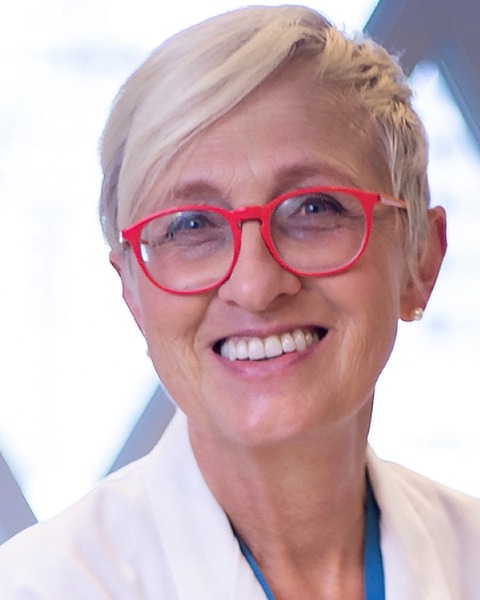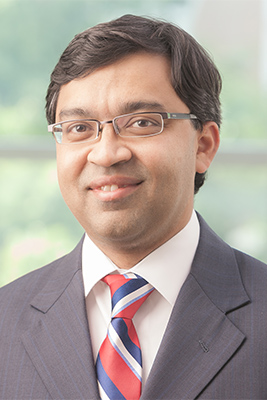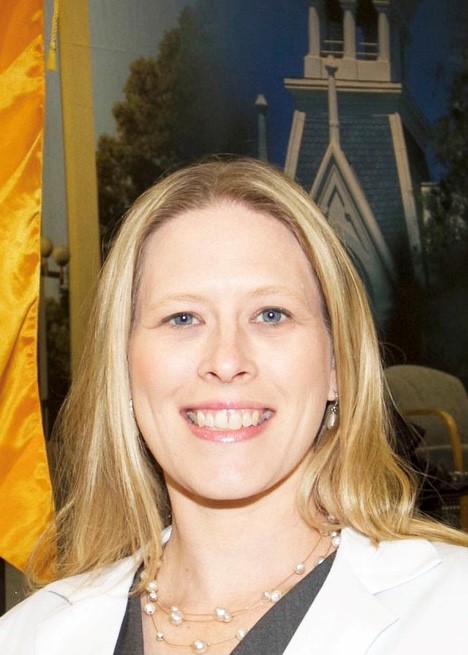Monkeypox in PALTC: What You Need to Know (Archive 9/21/22)
1.0 CME / 1.0 CMD Clinical
This webinar will address the frequent questions and concerns around best practices for the prevention, treatment, and management of monkeypox across PALTC settings. The panel will discuss precautions for preventing transmission, how to monitor staff who have been exposed to monkeypox, and how to access the vaccine if needed.
Learning Objectives
By the end of the webinar, participants should be able to:
- List the most common signs and symptoms of monkeypox.
- Describe best practices for preventing transmission of monkeypox between residents and staff.
- Discuss what steps are needed to monitor staff who have been exposed to monkeypox.
- Explain how to access the monkeypox vaccine.
Speaker Information:
Moderator: Sabine Von Preyss-Friedman, MD, FACP, CMD
Panel: Muhammad S. Ashraf, MBBS; Swati Gaur, MD, MBA, CMD; Heather Jones, DNP, NP-C
 Sabine von Preyss-Friedman, MD, CMD, FACP, is an associate clinical professor at the University of Washington and chief medical officer of Avalon Health Care. She first became a Certified Medical Director in 1992 and has since been enthusiastically engaged in the practice of post-acute and long-term care medicine. She serves as president of AMDA’s Washington State Chapter.
Sabine von Preyss-Friedman, MD, CMD, FACP, is an associate clinical professor at the University of Washington and chief medical officer of Avalon Health Care. She first became a Certified Medical Director in 1992 and has since been enthusiastically engaged in the practice of post-acute and long-term care medicine. She serves as president of AMDA’s Washington State Chapter.
 Muhammad S. Ashraf, MBBS, is an associate professor in the Division of Infectious Diseases, Department of Internal Medicine, at University of Nebraska Medical Center, Omaha, NE, where he also serves as the medical director for the Nebraska Infection Control Assessment and Promotion Program (ICAP) and co-medical director for the Nebraska Antimicrobial Stewardship Assessment and Promotion Program (ASAP). He is a member of the SHEA Long-Term Care Special Interest Group, SHEA Education Committee, IDSA Antimicrobial Resistance Committee, and the Infection Advisory Committee of AMDA – The Society for PALTC Medicine. Dr. Ashraf is currently working on multiple projects focused on promoting infection prevention and control and antimicrobial stewardship programs in long-term care facilities.
Muhammad S. Ashraf, MBBS, is an associate professor in the Division of Infectious Diseases, Department of Internal Medicine, at University of Nebraska Medical Center, Omaha, NE, where he also serves as the medical director for the Nebraska Infection Control Assessment and Promotion Program (ICAP) and co-medical director for the Nebraska Antimicrobial Stewardship Assessment and Promotion Program (ASAP). He is a member of the SHEA Long-Term Care Special Interest Group, SHEA Education Committee, IDSA Antimicrobial Resistance Committee, and the Infection Advisory Committee of AMDA – The Society for PALTC Medicine. Dr. Ashraf is currently working on multiple projects focused on promoting infection prevention and control and antimicrobial stewardship programs in long-term care facilities.
 Swati Gaur, MD, MBA, CMD, is a geriatrician and medical director of long-term care facilities at Northeast Georgia Health System (NGHS). Dr. Gaur is geriatrics core faculty with the graduate medical education program at NGHS. She is also the medical director with Alliant Health Solutions a CMS QIO. She is a member of the Georgia Antimicrobial Stewardship Committee. Dr. Gaur has several publications on infectious diseases (i.e., COVID-19, UTI consensus statement) and has been a speaker on topics related to infections, sepsis, COVID, respiratory issues, and skin and urinary infections on multiple forums. Dr. Gaur currently serves on AMDA’s Board of Directors as treasurer, as chair of the Infection Advisory Committee, and a member of the COVID -19 Task Force.
Swati Gaur, MD, MBA, CMD, is a geriatrician and medical director of long-term care facilities at Northeast Georgia Health System (NGHS). Dr. Gaur is geriatrics core faculty with the graduate medical education program at NGHS. She is also the medical director with Alliant Health Solutions a CMS QIO. She is a member of the Georgia Antimicrobial Stewardship Committee. Dr. Gaur has several publications on infectious diseases (i.e., COVID-19, UTI consensus statement) and has been a speaker on topics related to infections, sepsis, COVID, respiratory issues, and skin and urinary infections on multiple forums. Dr. Gaur currently serves on AMDA’s Board of Directors as treasurer, as chair of the Infection Advisory Committee, and a member of the COVID -19 Task Force.
 Heather Jones, DNP, NP-C, has a clinical background in long-term care, acute care, and chronic care management including extensive work in containment and reduction of communicable infectious diseases in long-term care facilities. She has worked on numerous projects throughout her career for enhancing and improving infection control measures in congregate settings. She is a nurse consultant with the long-term care team within CDC’s Division of Healthcare Quality Promotion with a strong focus on infection prevention and control and she most recently served as the co-lead for infection prevention and control in the monkeypox response.
Heather Jones, DNP, NP-C, has a clinical background in long-term care, acute care, and chronic care management including extensive work in containment and reduction of communicable infectious diseases in long-term care facilities. She has worked on numerous projects throughout her career for enhancing and improving infection control measures in congregate settings. She is a nurse consultant with the long-term care team within CDC’s Division of Healthcare Quality Promotion with a strong focus on infection prevention and control and she most recently served as the co-lead for infection prevention and control in the monkeypox response.
Credit Information:
Activity Created 9/2022
Credits Available Until 9/2025
Credit Statements:
CME: AMDA – The Society for Post-Acute and Long-Term Care Medicine designates this enduring material for a maximum of 1.0 AMA PRA Category 1 Credit(s)TM. Physicians should only claim credit commensurate with the extent of their participation in the activity.
AMDA – The Society for Post-Acute and Long-Term Care Medicine for Post-Acute and Long-Term Care Medicine is accredited by the Accreditation Council for Continuing Medical Education (ACCME) to provide continuing medical education for physicians.
CMD: This self-study activity has been pre-approved by the American Board of Post-Acute and Long-Term Care Medicine (ABPLM) for a total of 1.0 clinical hours toward certification or recertification as a Certified Medical Director (CMD) in post-acute and long-term care medicine. The CMD program is administered by the ABPLM. Each physician should claim only those hours of credit actually spent on the activity.
Visit the Continuing Education page for information on if and how you can claim credit/hours for AMDA’s education.
Disclosure Information:
The Society requires the disclosure of all speaker/faculty/planner’s relevant financial relationships; presence of off-label use of a device or medication; and discussion of any experimental, new or evolving topic prior to each accredited education activity.
If the learner perceives any bias toward a commercial product or service, advocation of unscientific approaches to diagnosis or therapy, or recommendation, treatment, or manners of practicing healthcare that are determined to have risks or dangers that outweigh the benefits or are known to be ineffective in the treatment of patients please report this to the Society’s staff.
All relevant financial relationships have been identified, mitigated, and resolved.
All relationships have been identified, mitigated, and resolved.
The following AMDA Online Education Subcommittee members have financial relationships to report: Robert Zorowitz, MD, MBA, CMD – United Health Group: stock shareholder; all others have no relationships to disclose.
The speakers have no financial relationships to disclose.
AMDA staff have no financial relationships to disclose.